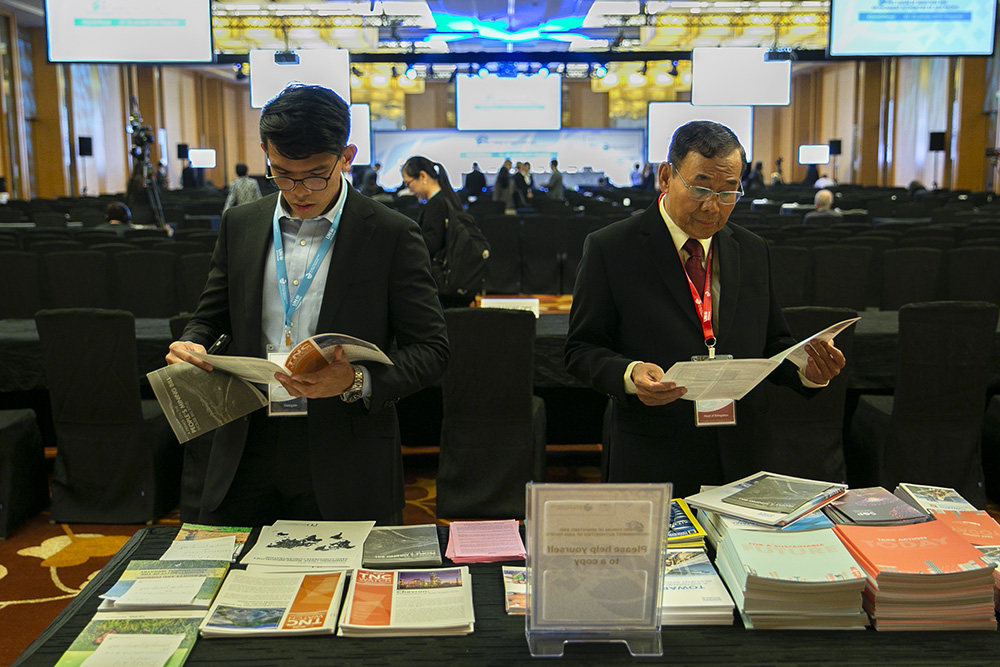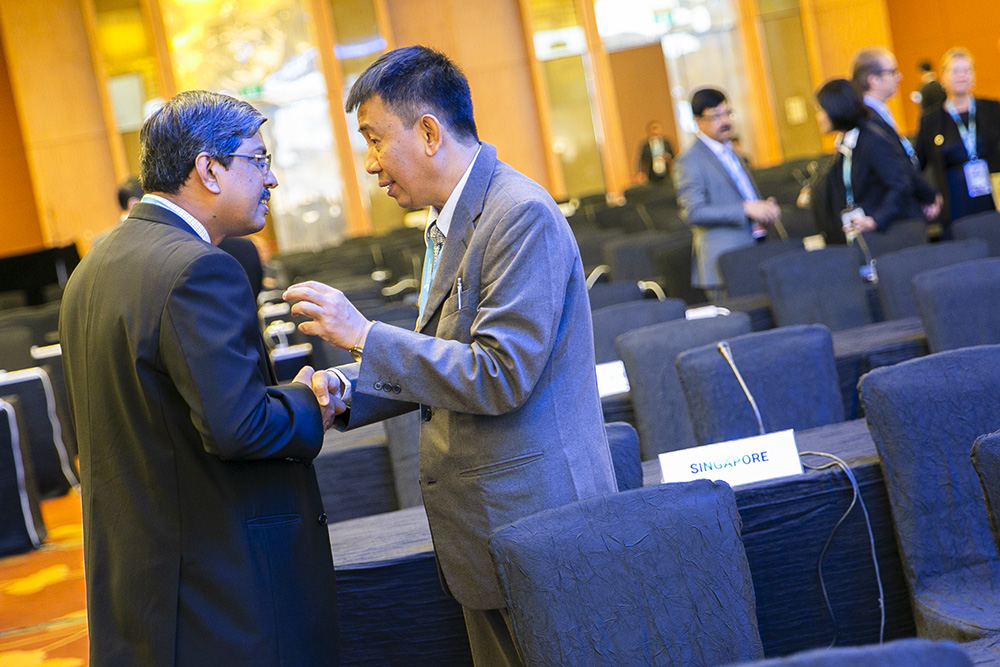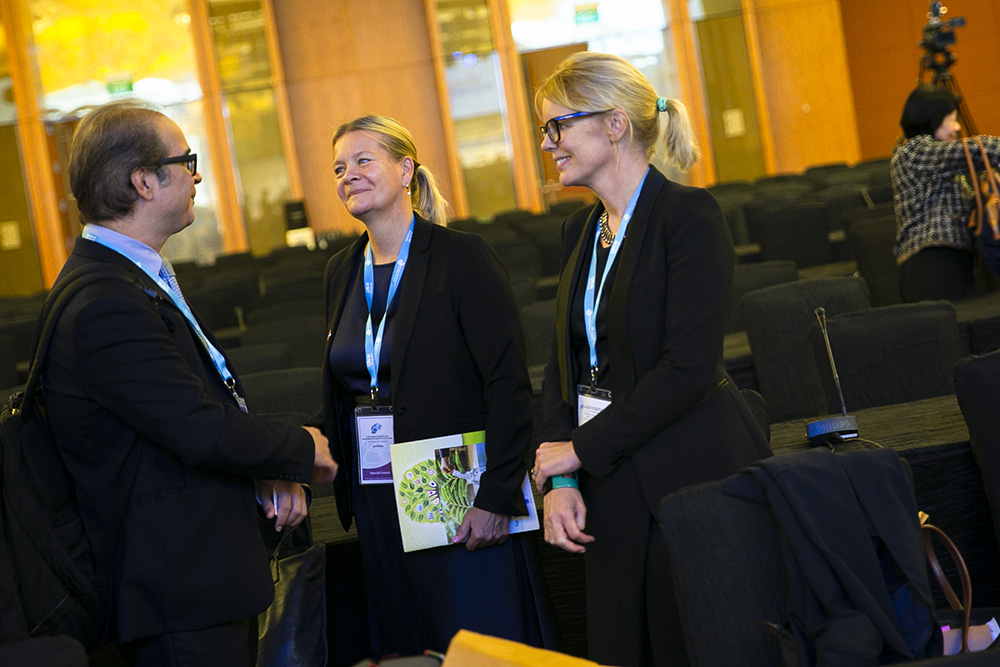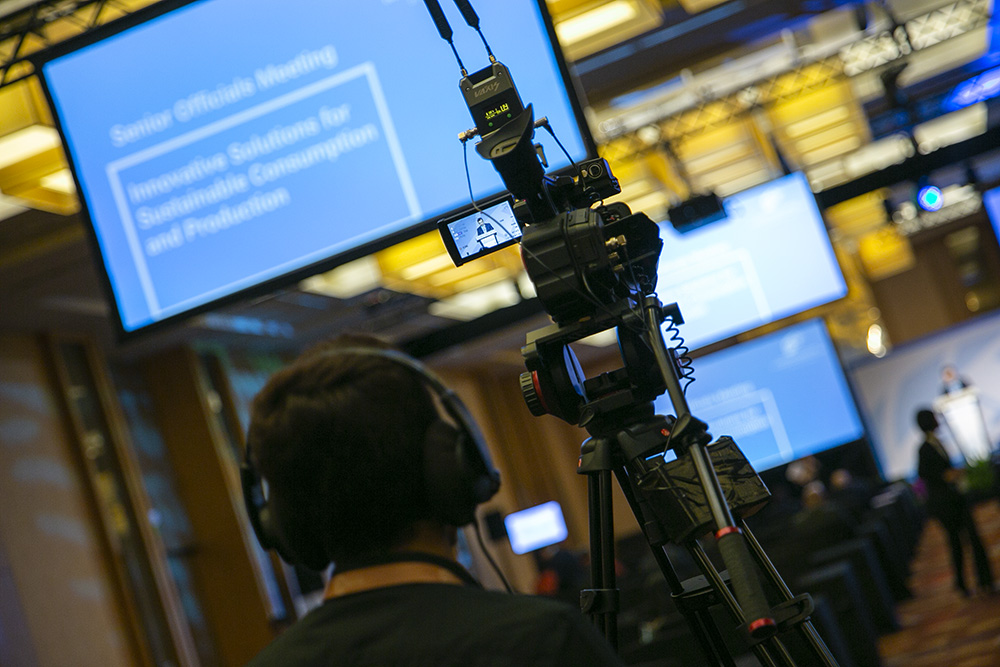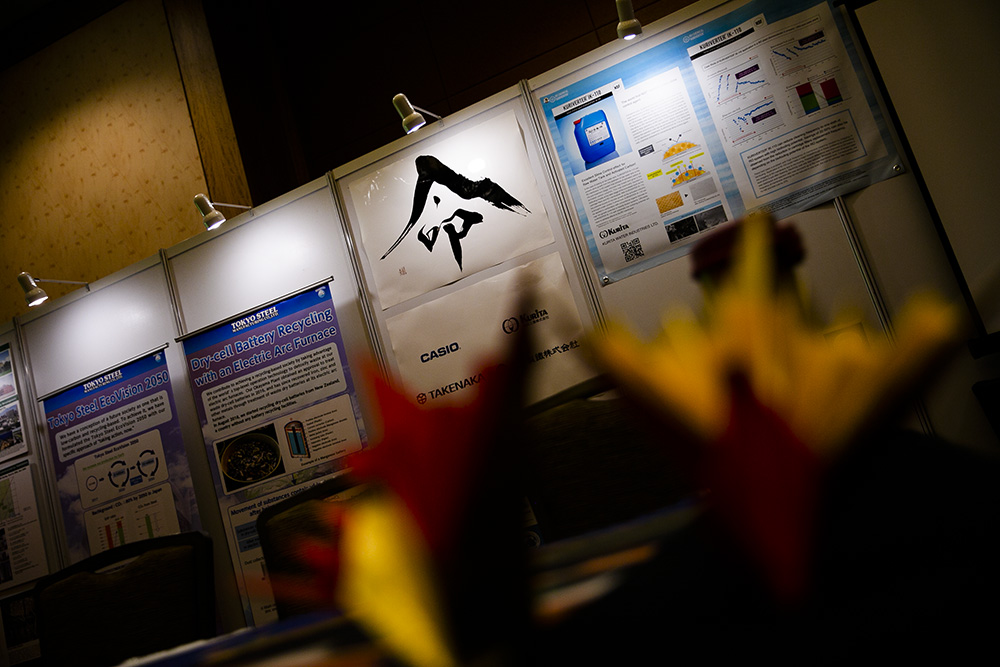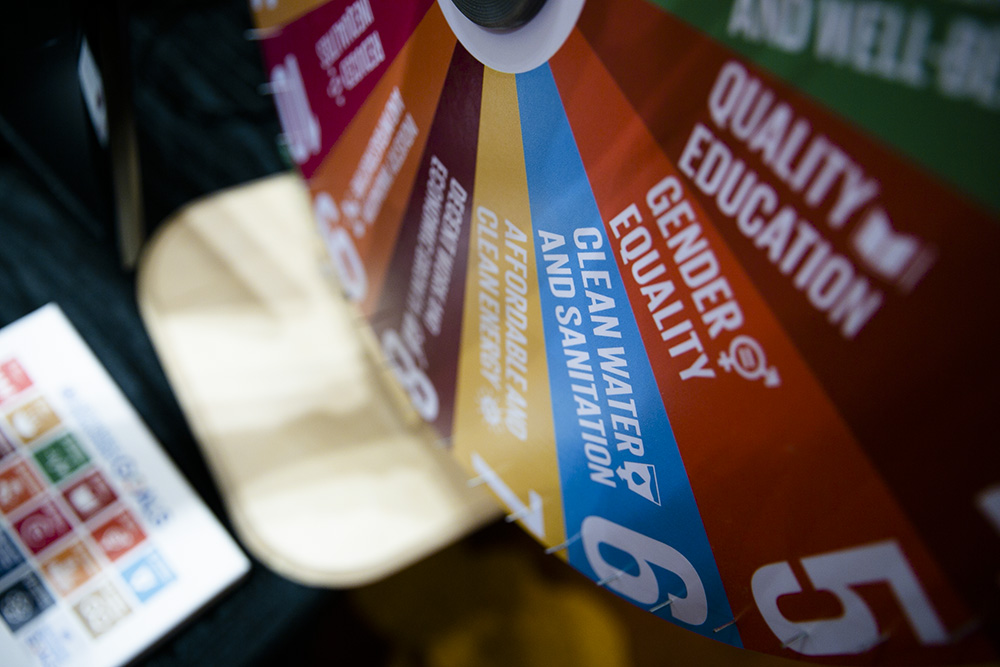Summary
Highlights for Thursday, 24 January 2019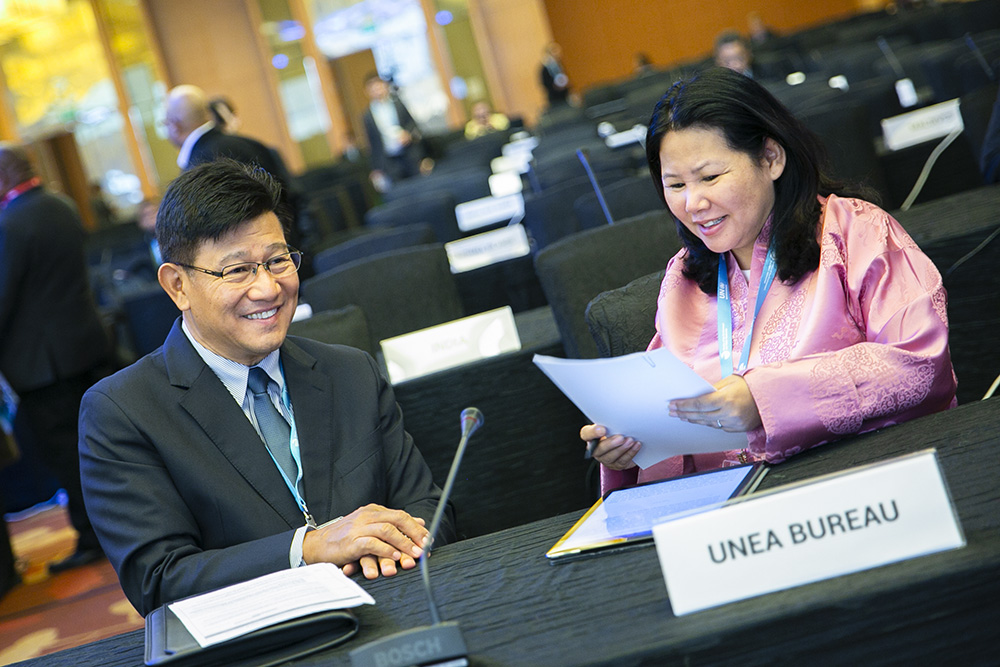
Senior officials from the 41 Member States of UN Environment in the Asia-Pacific region met for all-day discussions. They first elected S.P. Singh Parihar, Ministry of Environment, Forest and Climate Change, India, as Chair of the session, as well as Joshua Wycliffe, Ministry of Water, Waste and Environment, Fiji, and Seong Su Ho, Ministry of Environment, Republic of Korea, as Vice-Chairs, and adopted the meeting agenda.Amy Khor, Senior Minister of State for Health and for Environment and Water Resources, Singapore, welcomed delegates, calling for action on climate change and a shift from linear to circular economies. She noted that Singapore has declared 2019 its “year towards zero waste,” and highlighted its various recycling and circular economy initiatives.Dechen Tsering, Regional Director, UN Environment Asia-Pacific, expressed appreciation for Member States’ ownership of this regional process, as the Third Forum is the first meeting in the process to take place outside of UN Environment’s regional headquarters in Thailand.In the morning, Member States presented their actions in support of previous UNEA resolutions, with several countries mentioning the circular economy, resource efficiency, marine litter, and plastics pollution. Samoa announced that its national ban on single-use plastics, including straws, plastic bags, and Styrofoam items, will come into force on 30 January 2019.In the afternoon, delegates deliberated on draft resolutions for UNEA-4 in March. Some countries emphasized the need for time-bound technology transfer and financing targets. They also provided input to the draft ministerial declaration to be adopted by UNEA-4. Finally, they endorsed a report of the day’s meeting.Side events took place at lunchtime on: 'Catalyzing a Global Agenda on Adaptation to Climate Change: Exploring Transboundary Risks and Opportunities in the Asia Pacific Region'; and on 'Electrifying the Transport Sector to Beat Air Pollution.'
IISD Reporting Services, through its ENB+ Meeting Coverage, provided daily web coverage and a summary report from the 3rd Forum of Ministers and Environment Authorities of Asia Pacific, which is available in HTML and PDF.
Photos by IISD/ENB | Sean Wu
For photo reprint permissions, please follow instructions at our Attribution Regulations for Meeting Photo Usage Page
Morning Sessions
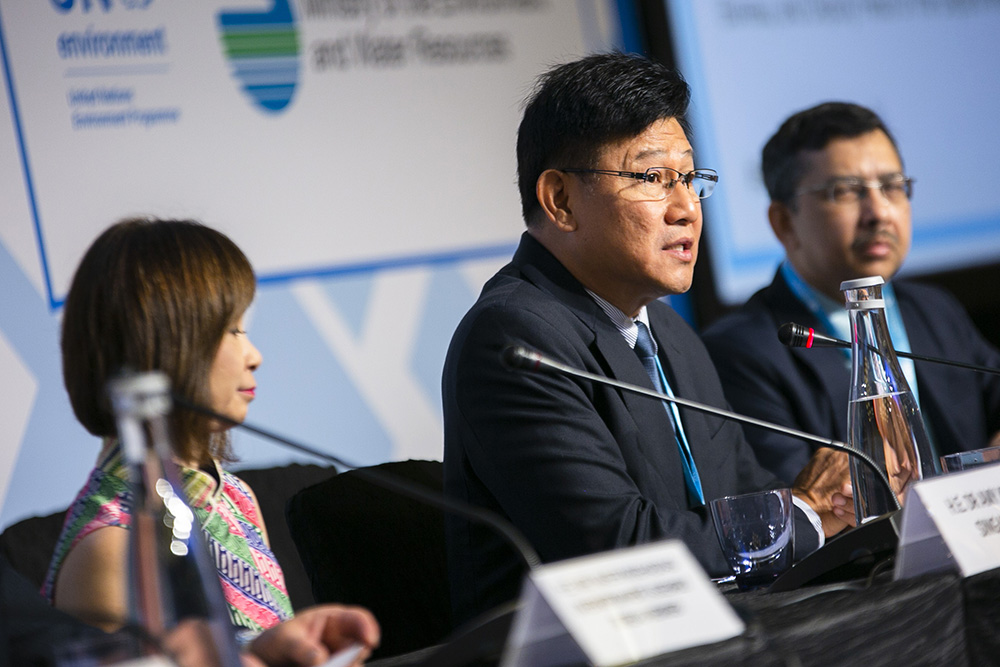
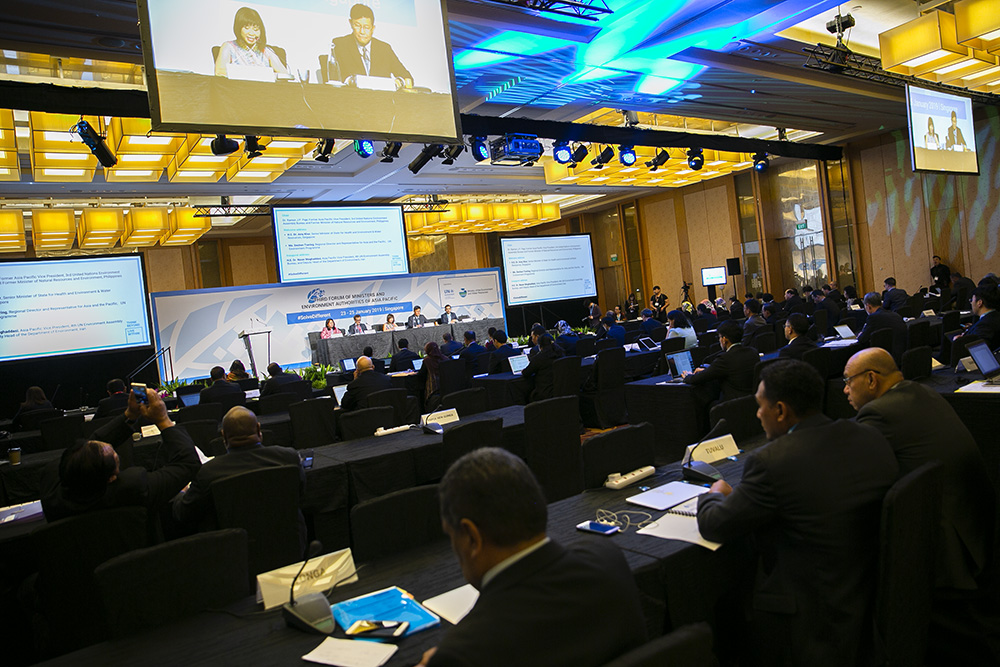
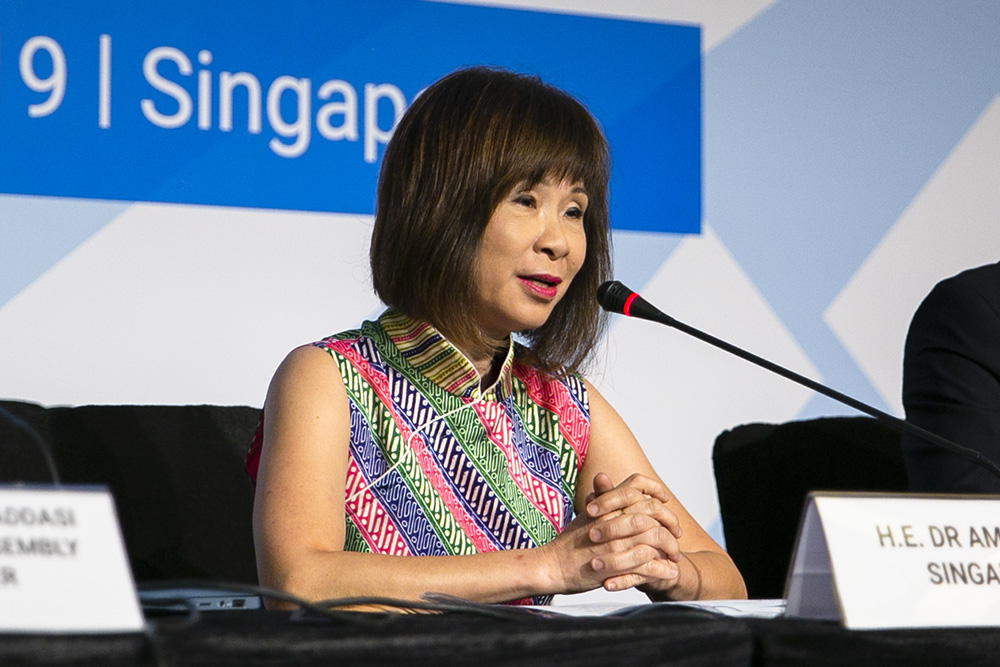
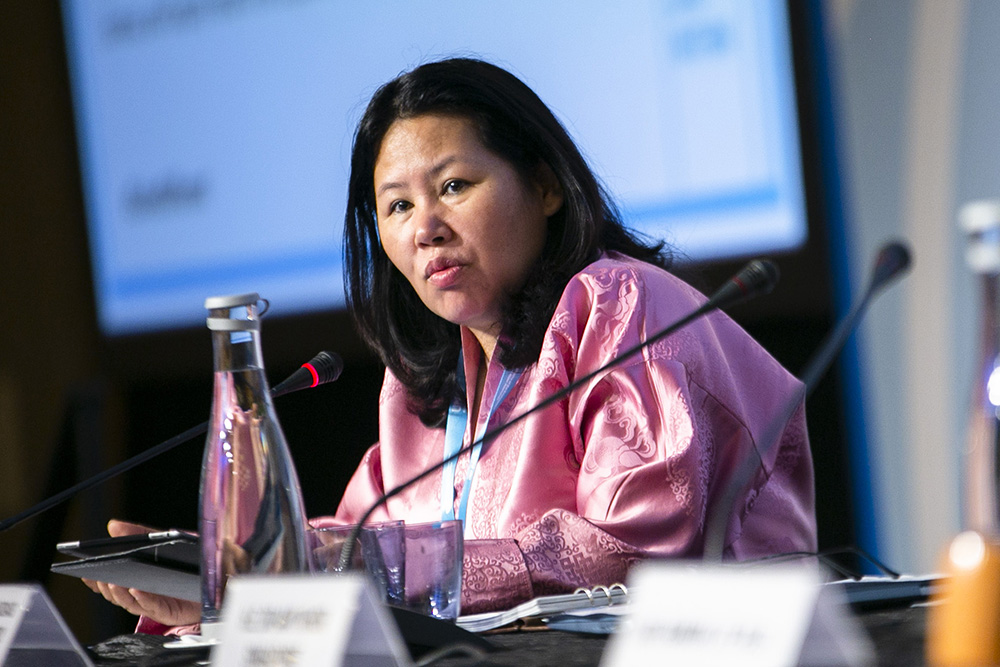
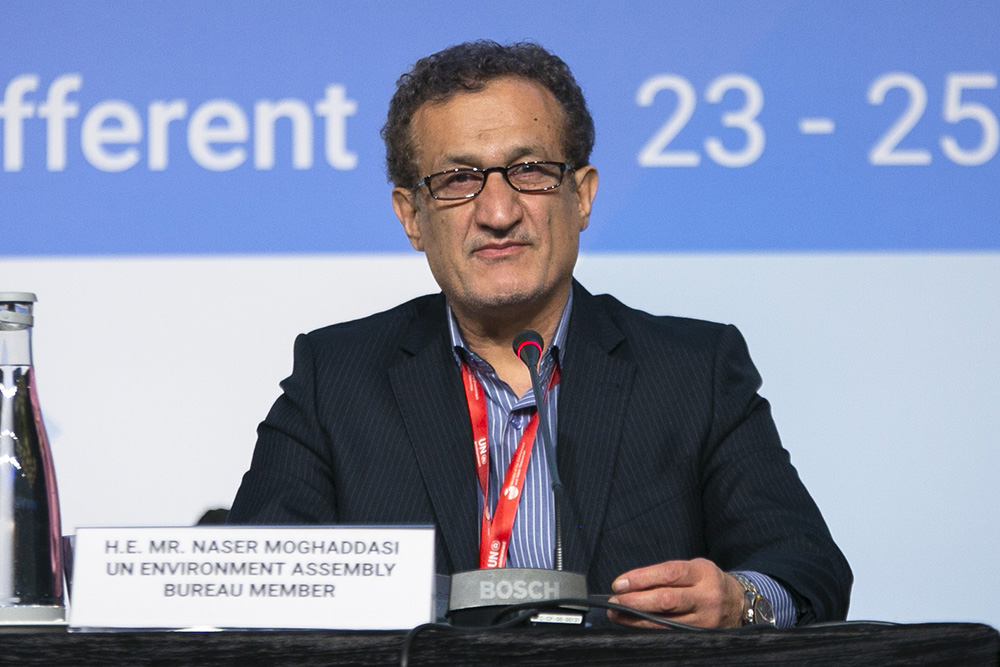
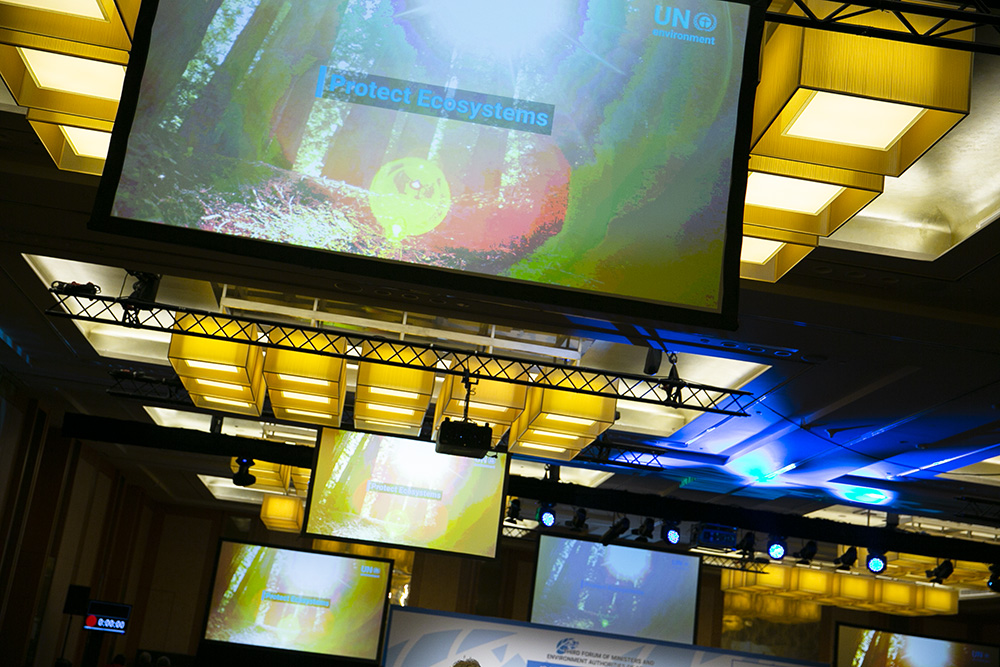
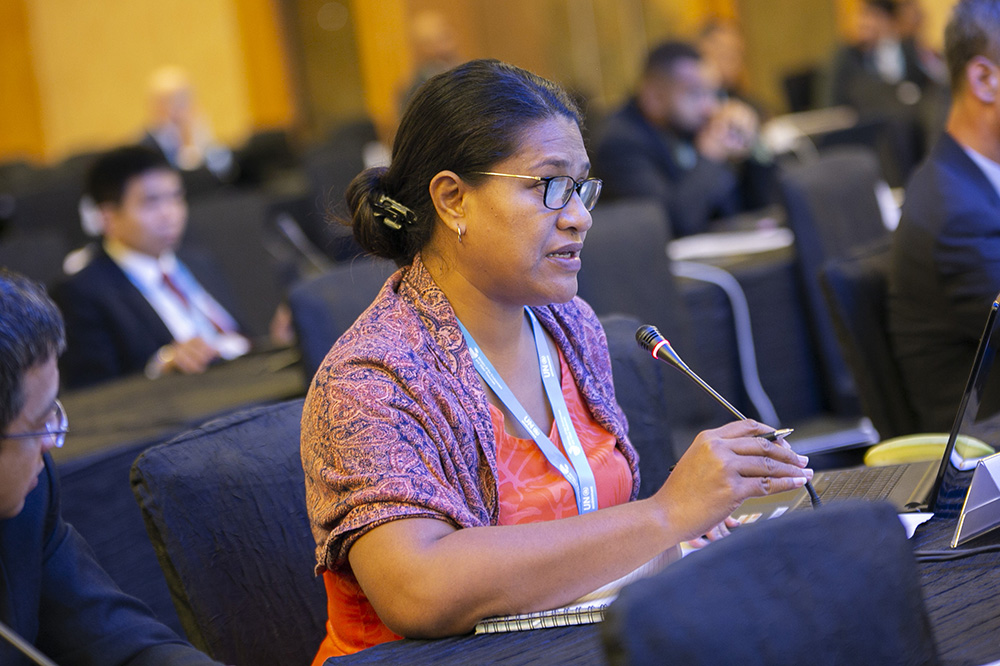
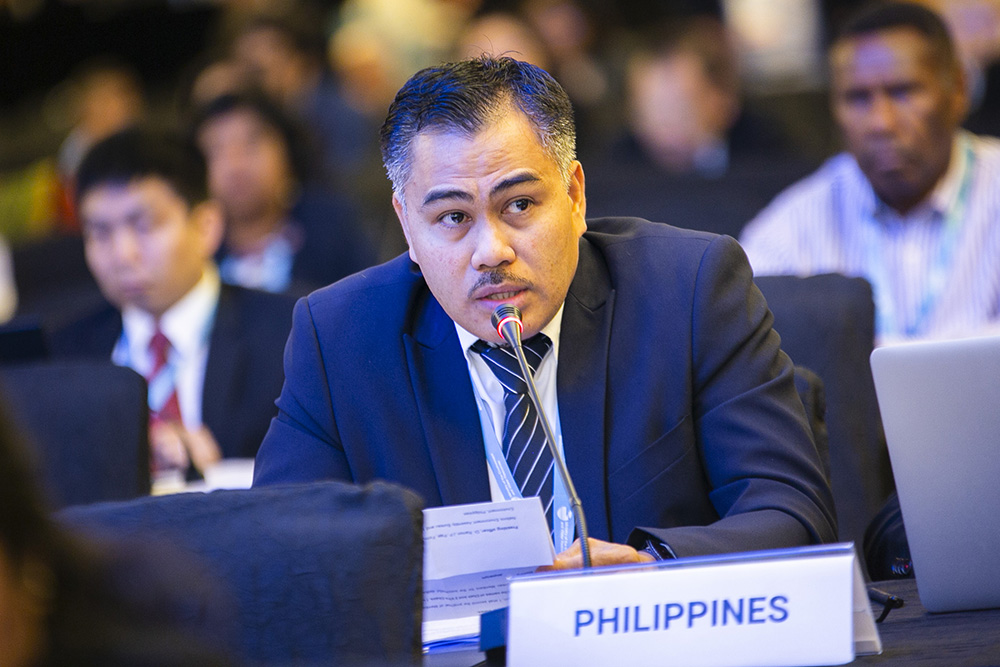
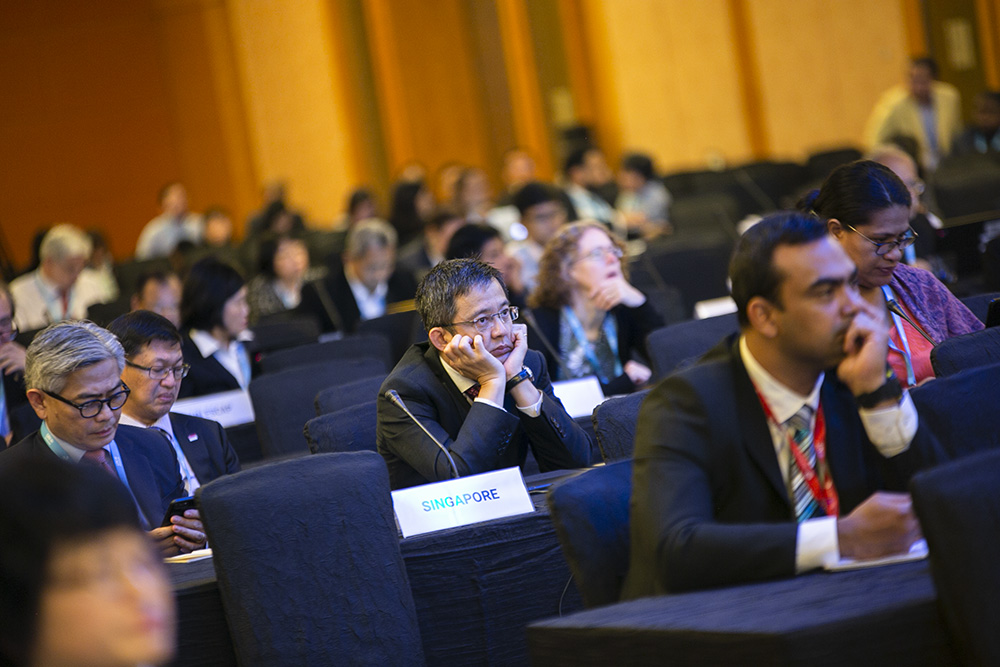


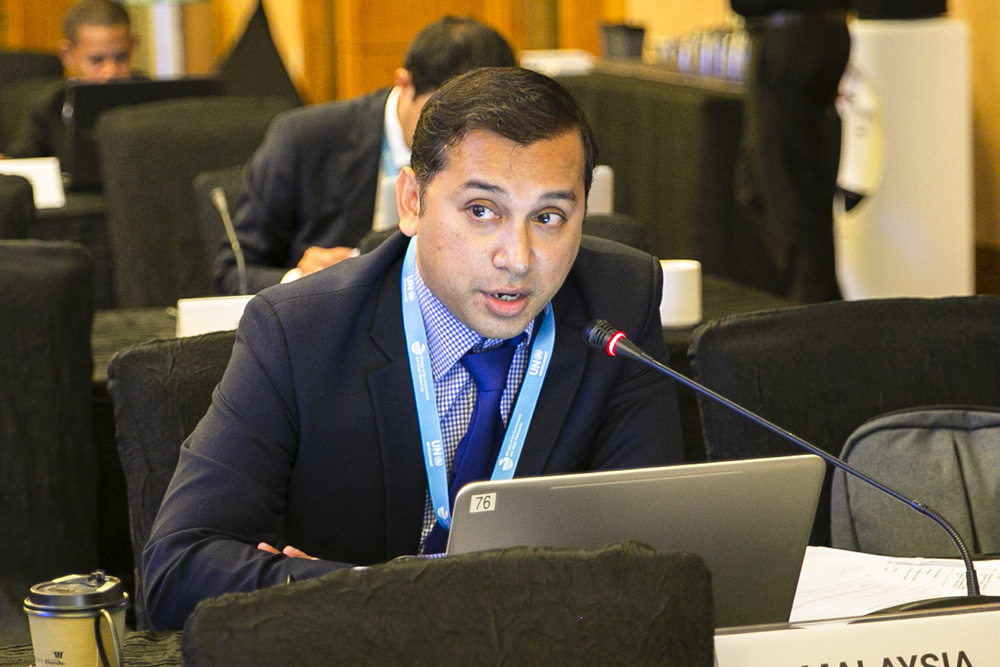
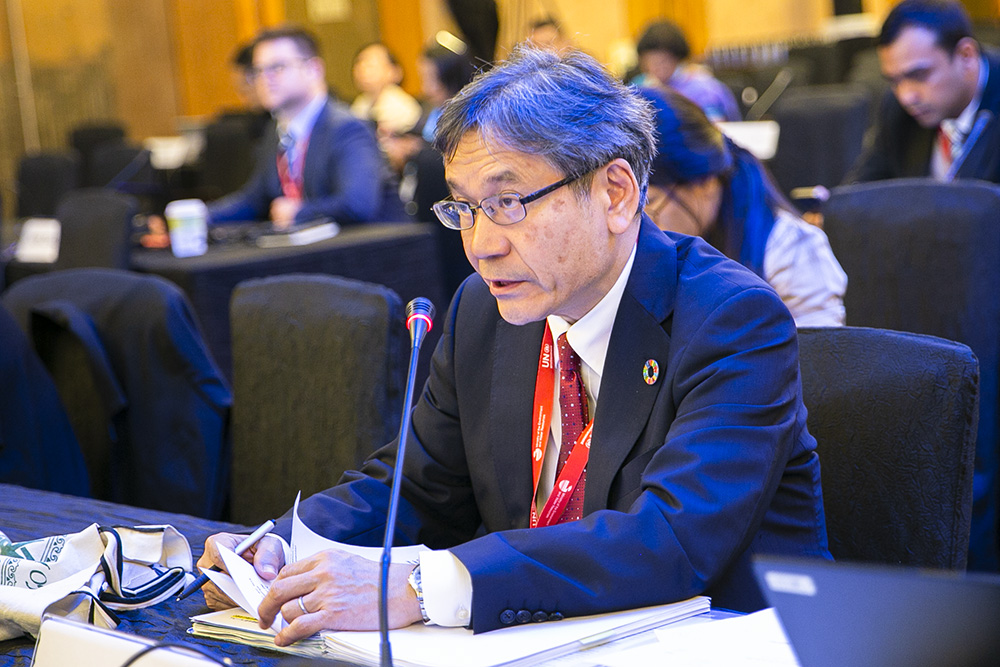
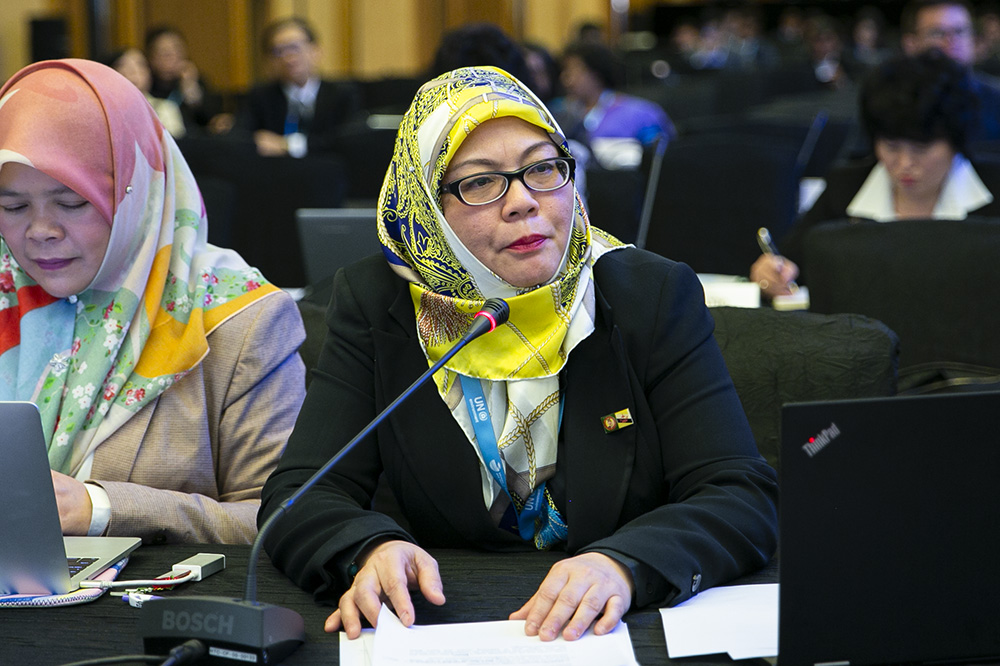
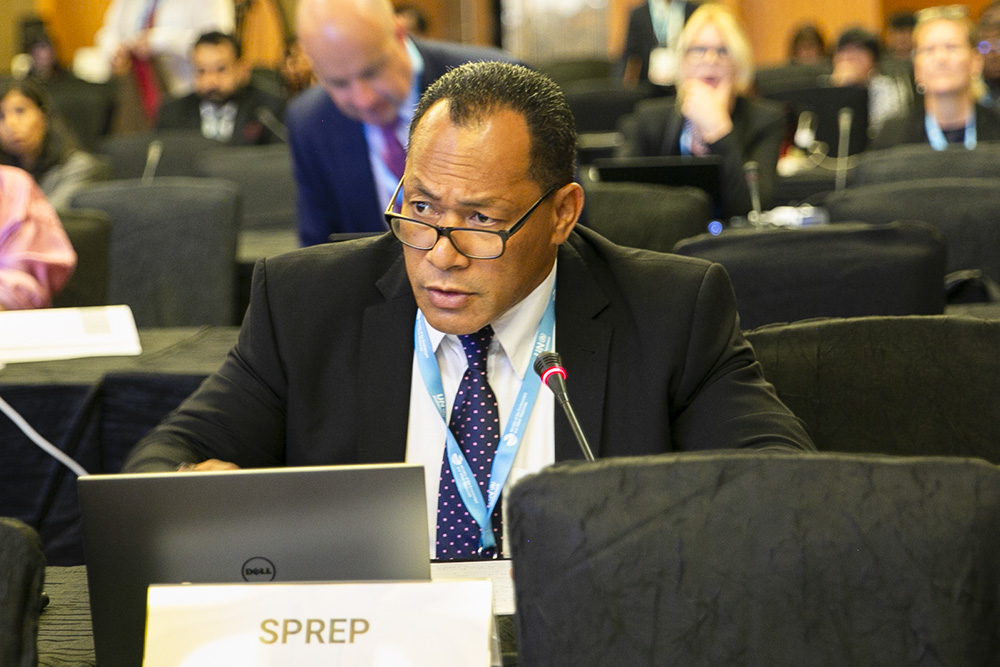
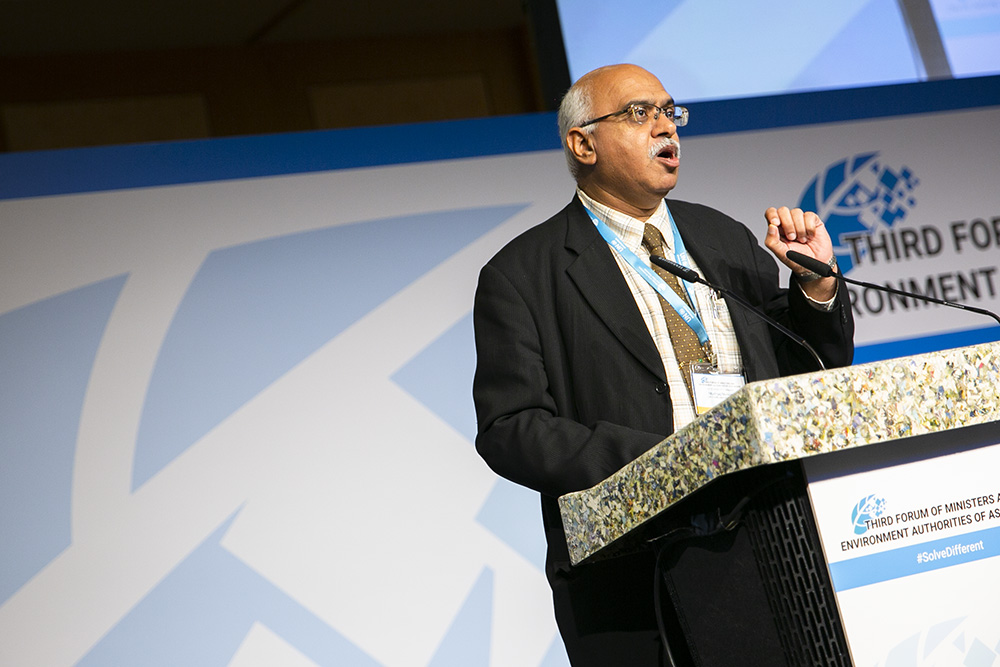
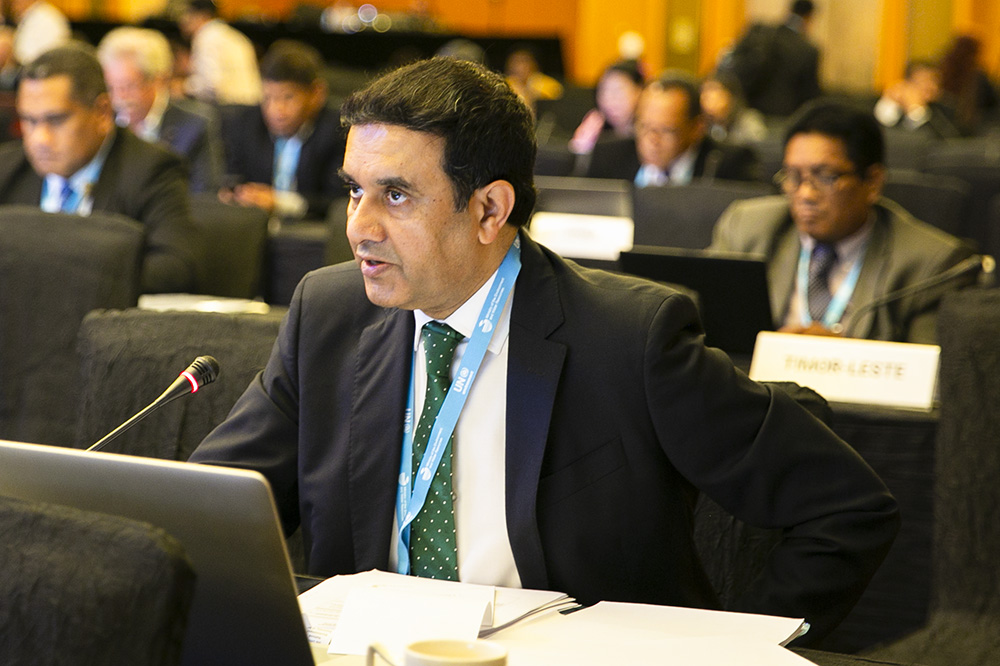
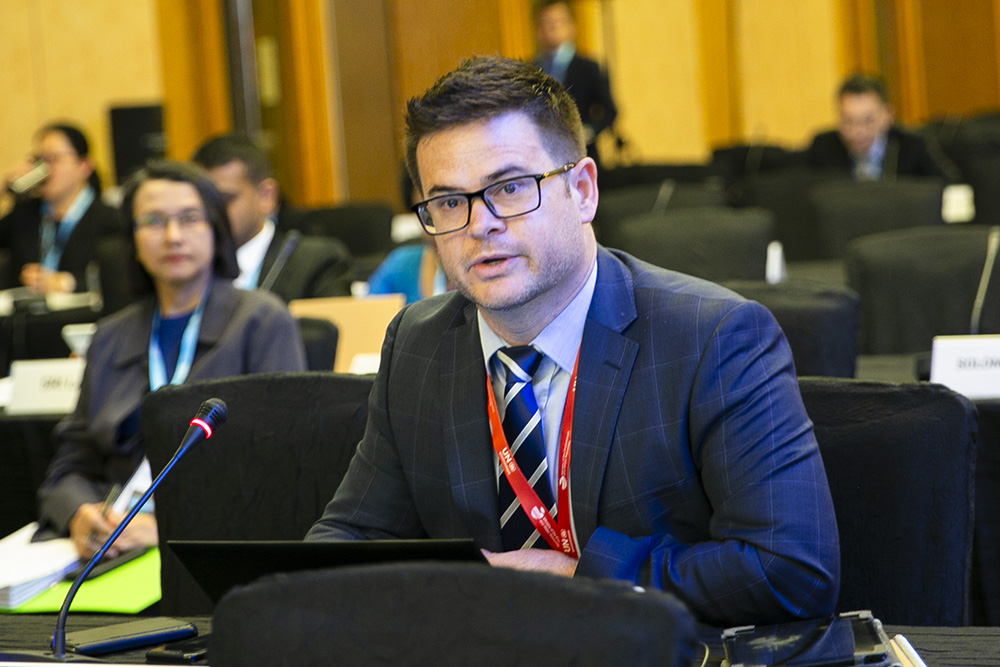
Afternoon Sessions
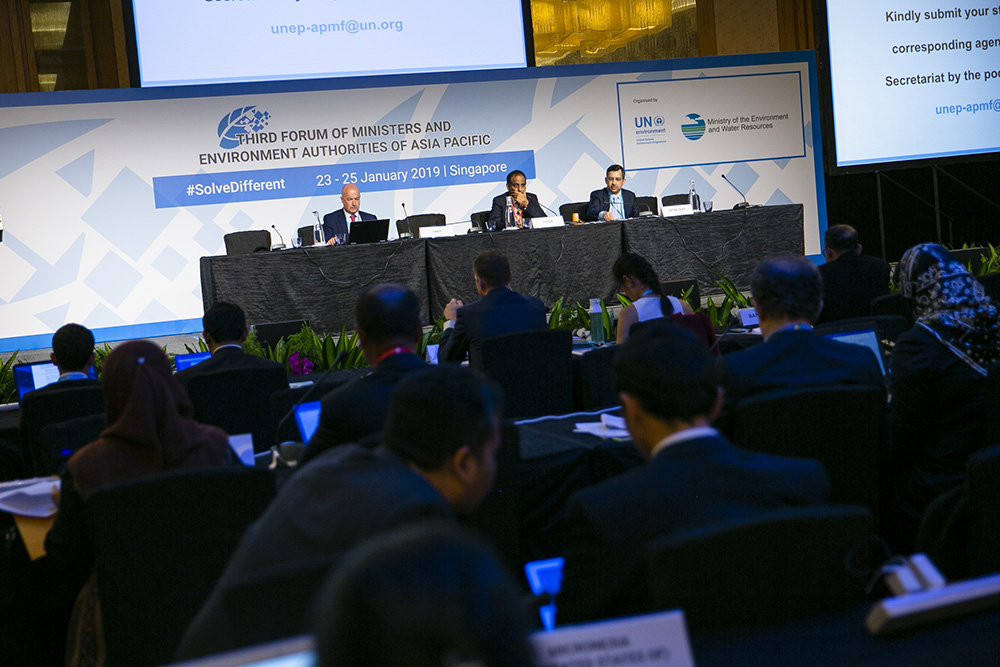
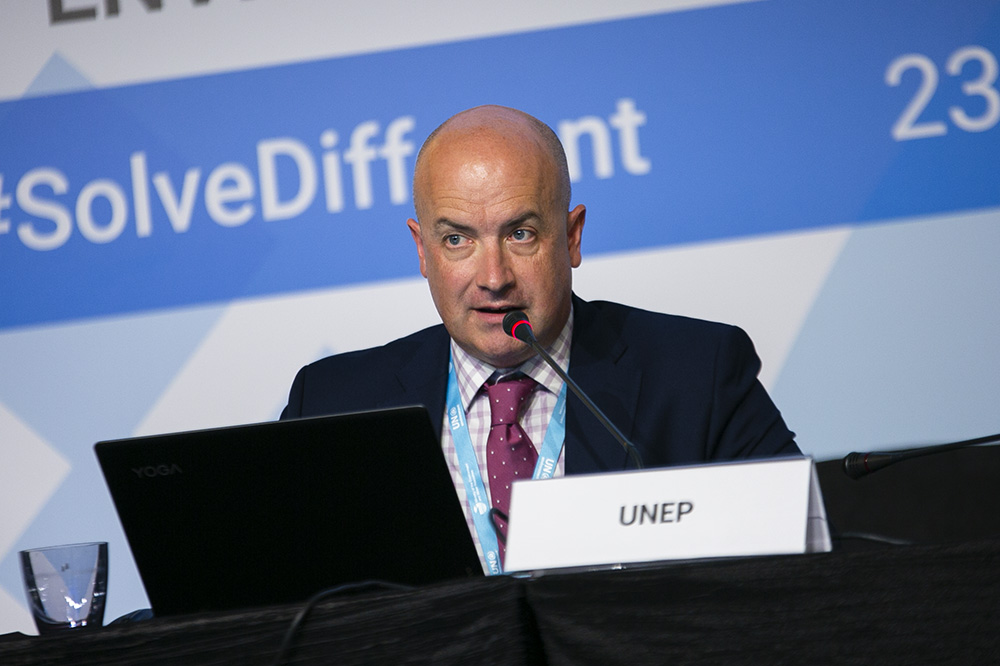
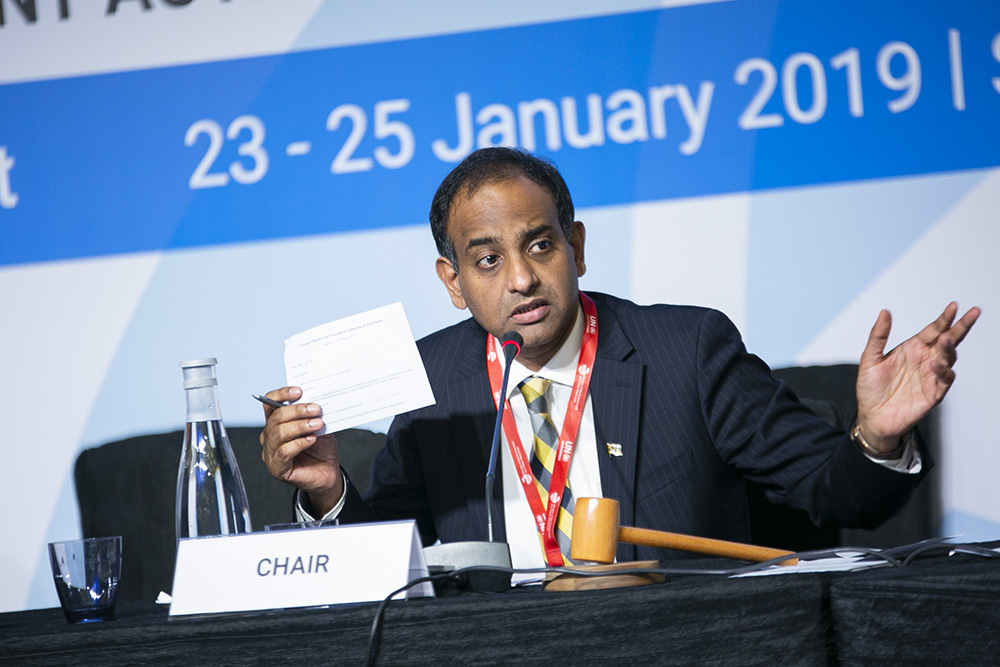
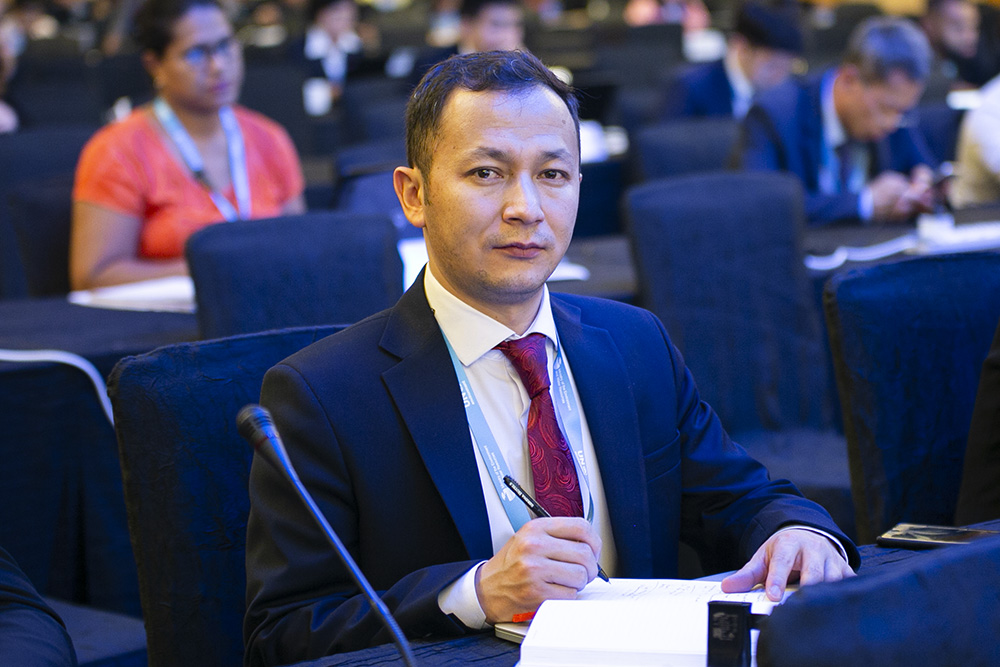
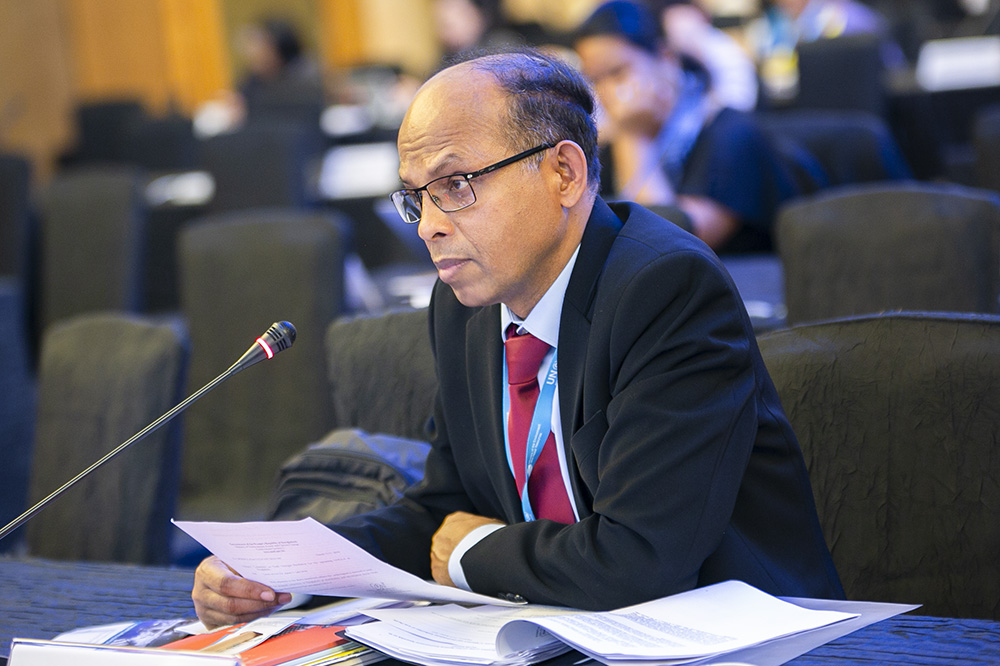
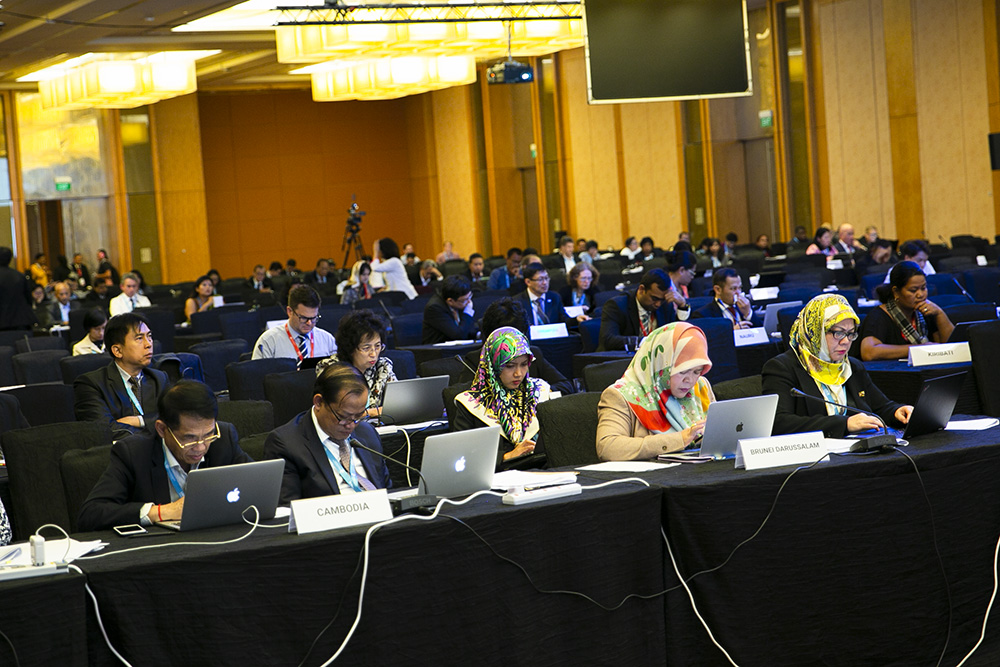
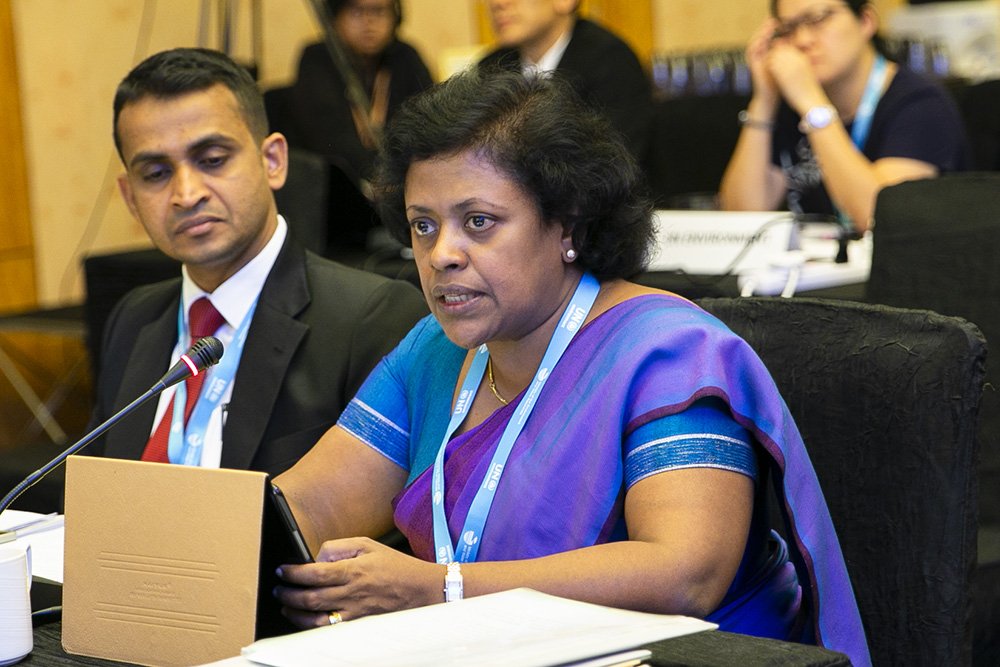
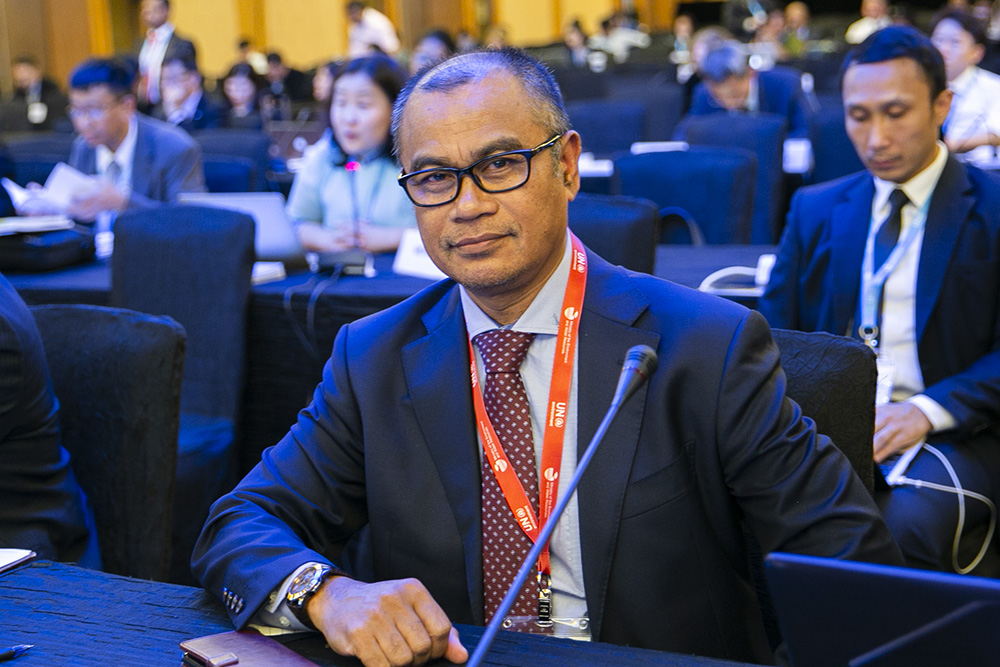
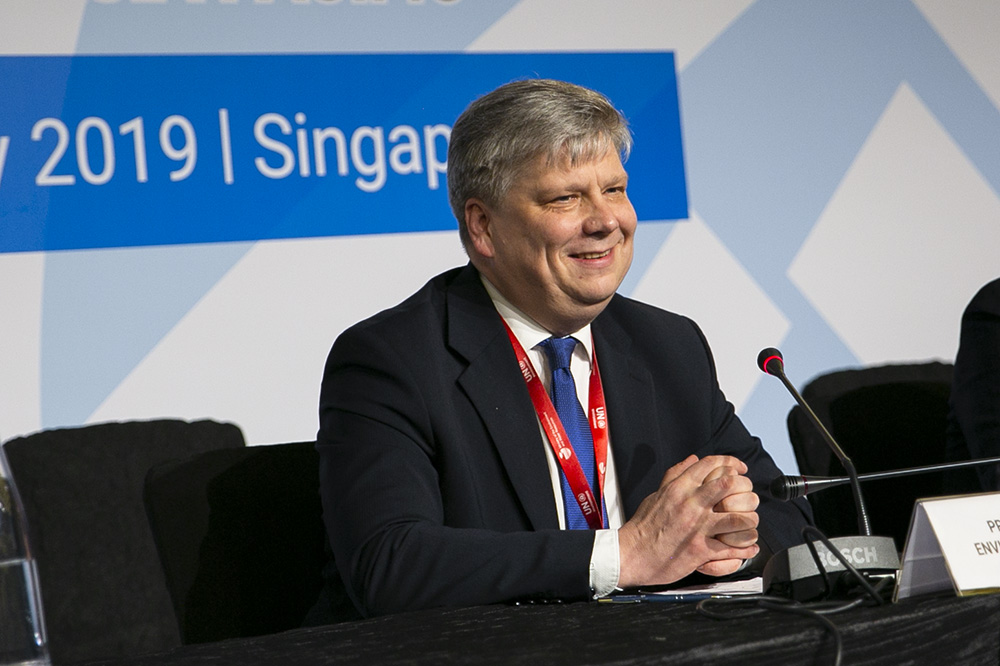
Side Event - Electrifying the Transport Sector to Beat Air Pollution
At this side event, panelists provided information on the “public health crisis of air pollution” affecting the Asia Pacific region, which leads to more than four million premature deaths each year. Participants highlighted electric mobility as a key intervention for reducing air pollution and introduced a variety of innovations in the electric mobility sector, highlighting unique financing opportunities around these. Panelists expressed hope that their event would be a platform to influence ministers and move cities toward mainstreaming the benefits of electric mobility.
Ki-Joon Kim, Asian Development Bank, presented on the difference between a motorized transport sector versus an electrified one. He noted that the number of cars worldwide is set to double from around one billion in 2015 to more than two billion in 2040, providing an opportunity to mainstream electric technology. John Gabarra, Senior Marketing Manager, Build Your Dreams, shared the experience of Shenzhen, China in achieving emissions reductions through deploying electric buses for mass transit, providing more than 70% reduction in CO2 emissions annually.
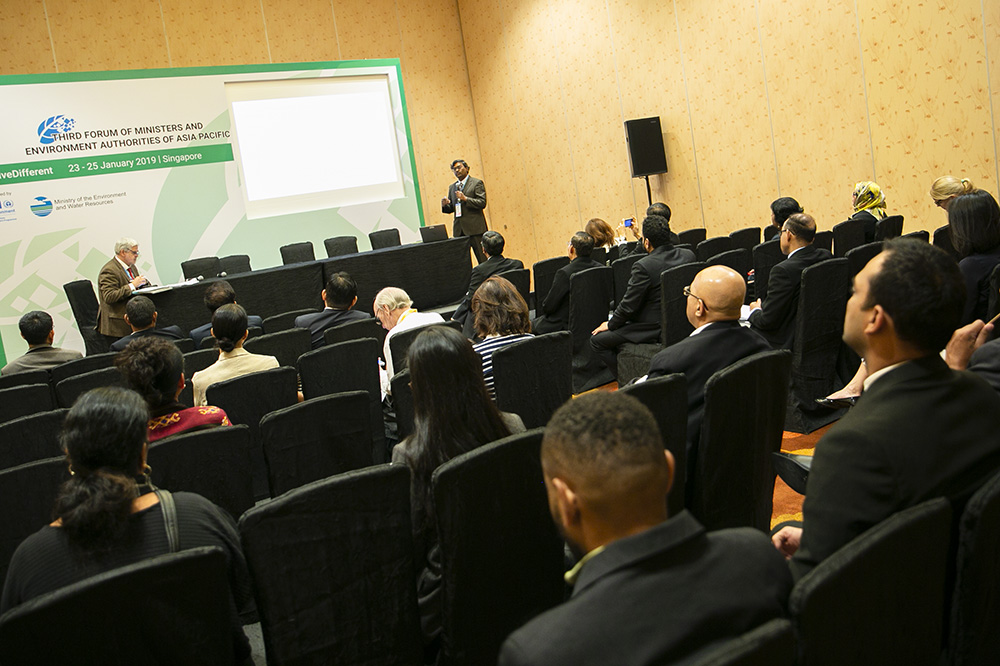
Side Event - Catalyzing a Global Agenda on Adaptation to Climate Change: Exploring Transboundary Risks and Opportunities in the Asia Pacific Region
During this side event, panelists spoke about the need to recognize cross-border climate risks, which are important to informing adaptation planning. Panelists said it was important to bring information and case studies to negotiators under the UNFCCC so that climate adaptation can be framed more clearly in terms of its international dimension, rather than purely as a national-to-local concern. Participants noted the possibility of promoting policy coherence among countries as well as focusing on common agendas.
Mozaharul Alam, UN Environment, gave opening remarks, noting the importance of cross-boundary risks. Niall O’Connor, Stockholm Environment Institute, chaired the side event and contextualized cross-boundary climate risks in the Asia Pacific, noting that framing adaptation as a local problem may be holding back progress. During the discussion, one participant proposed that the adaptation challenge can be reframed by recognizing the connections between people, ecosystems and economies.
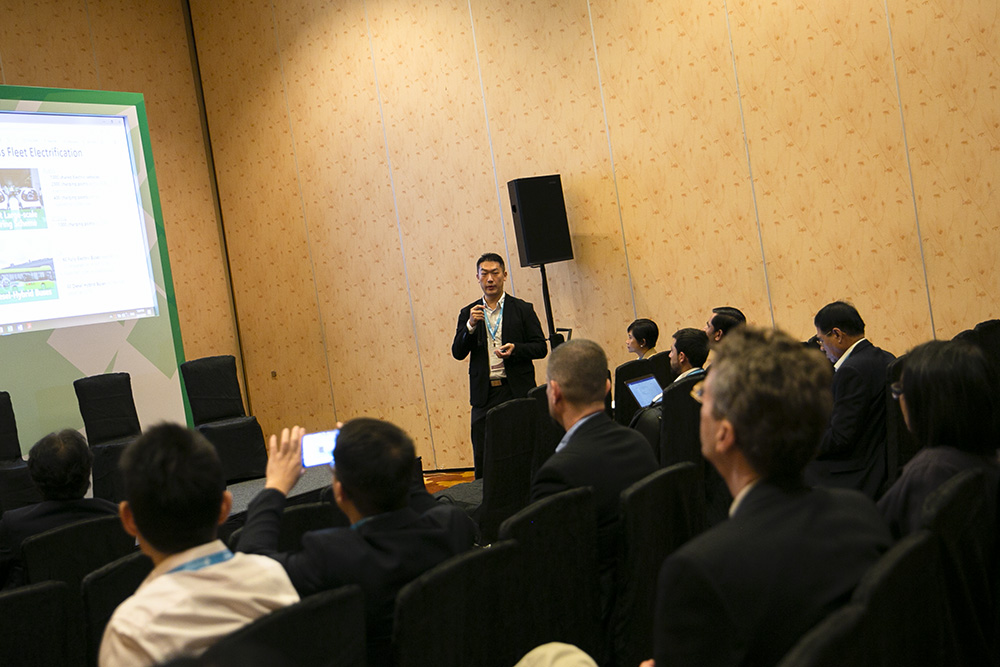
Around the Venue


